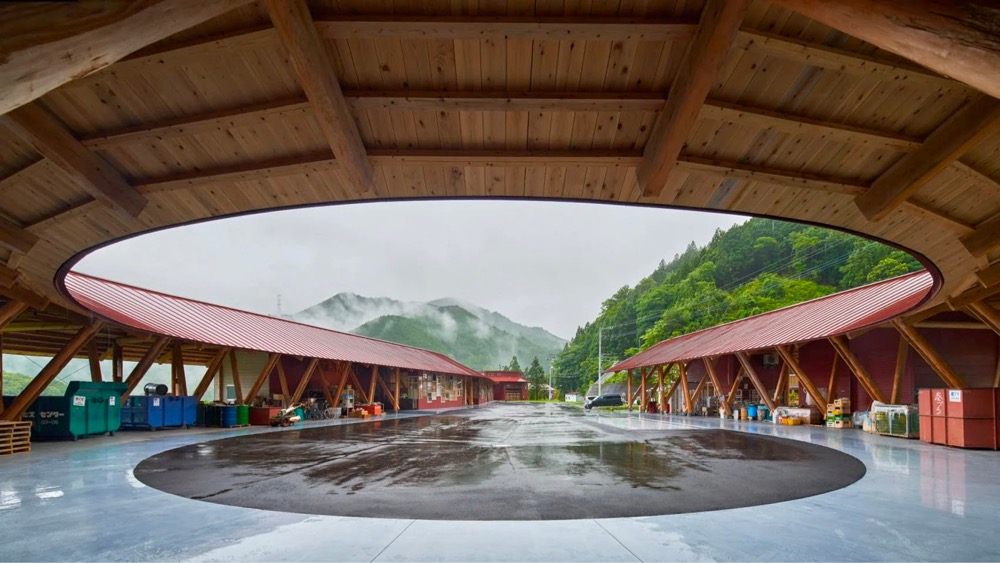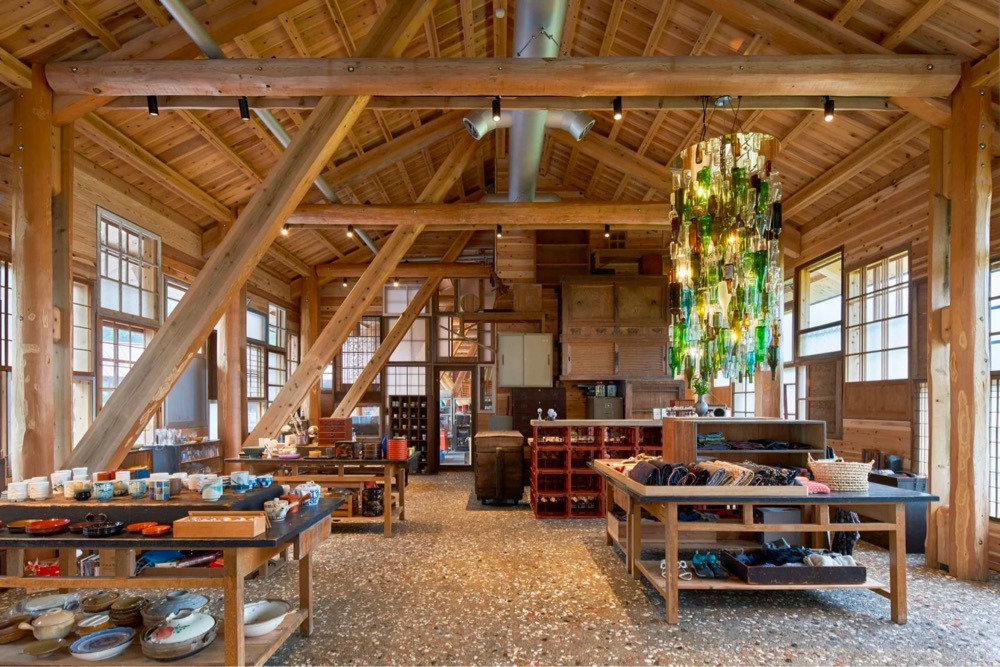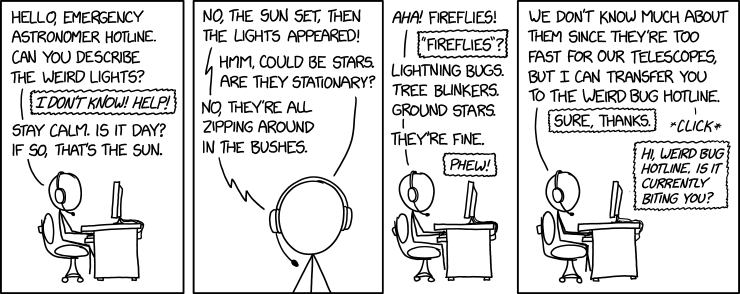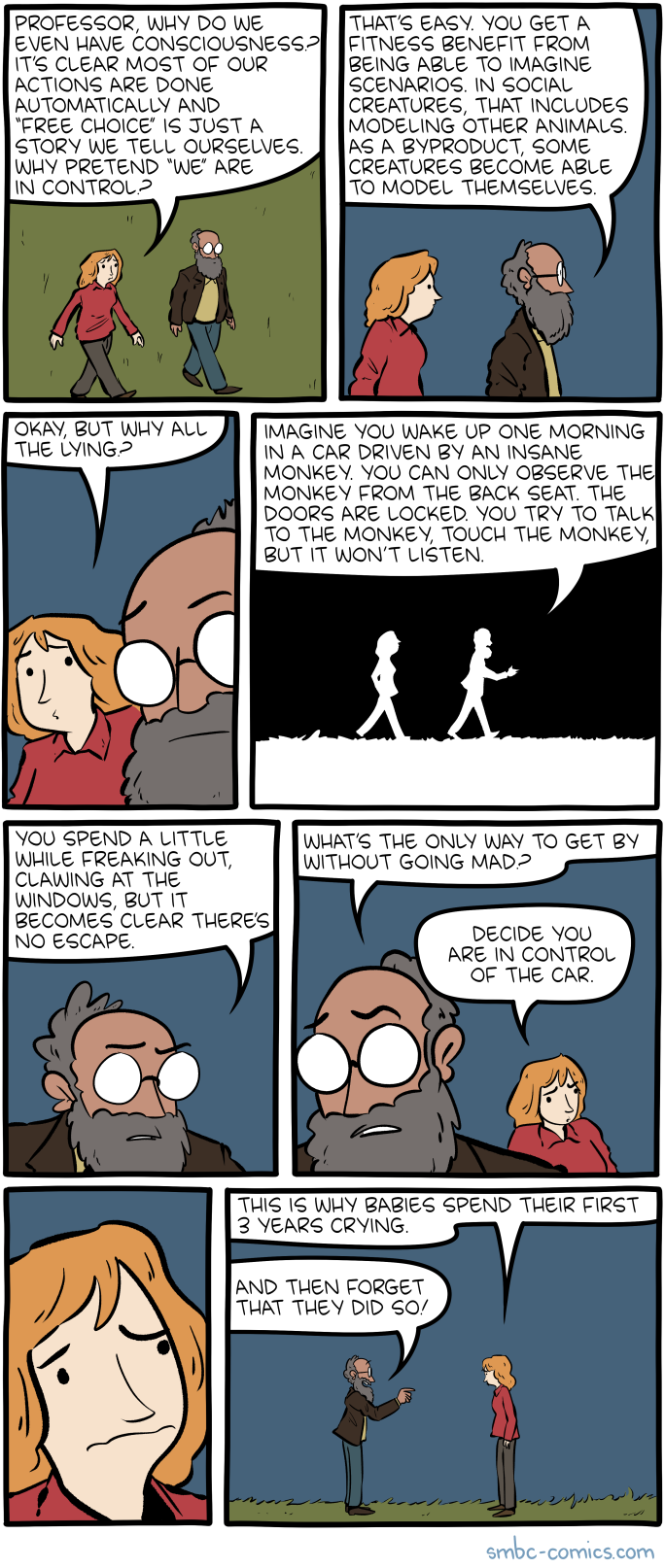Saturday Morning Breakfast Cereal - Mathematics
By tech@thehiveworks.com
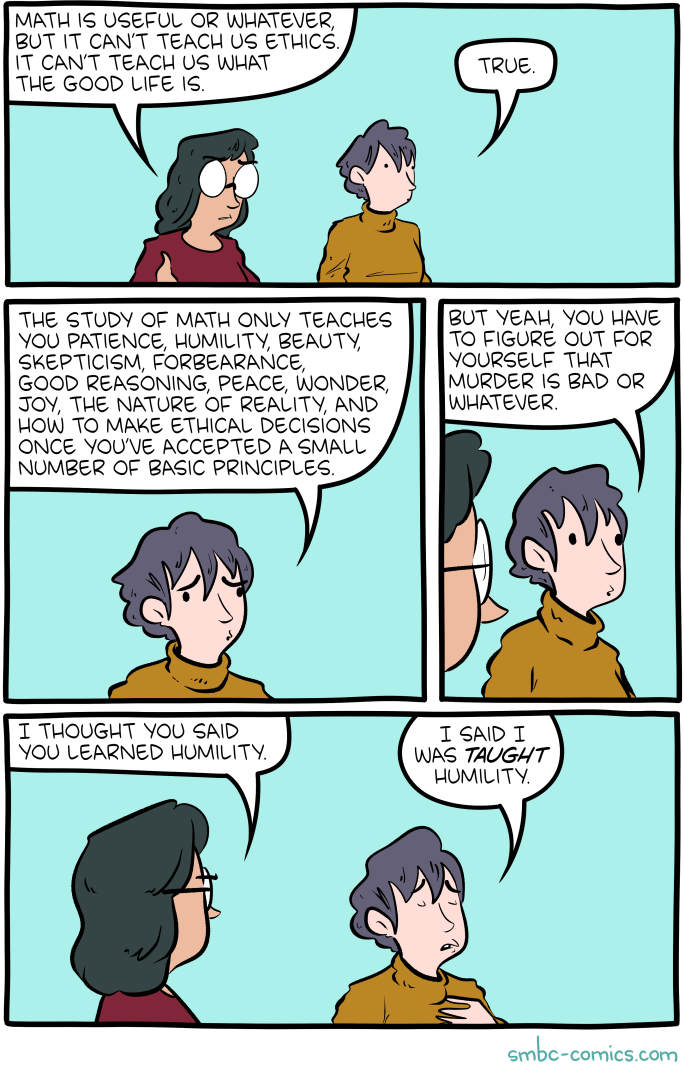
Click here to go see the bonus panel!
Hovertext:
Written after enjoying Francis Su's new book, Mathematics for Human Flourishing, which slightly changed my view about this type of question.
Today's News:
Quick notes before blog:
One: A bunch of you mutants who use RSS noted that it was having weird formatting issues. I've deformatted today's blog before posting. Please let me know how it works.
Two: Thanks for the lovely emails, cucurbit-fanciers. I'm sorry so many of you have had trouble growing them - consider trying gourds or cucumbers or melons, which seem less subject to pests in my experience. One reader recommends looking into tatume squash.
Three: I've gotten some requests to host these posts somewhere so people can cleanly share them. I'm looking into it. My one rule is I don't want it to be the least bit interactive, other than through emails, so a lot of the ready-made blogging sites won't work. More to come.
Theory of the Peak Experience I have a deep bias that VR does not have mass market potential. I think it would’ve been shocking to me circa 1989 that for about the equivalent price of a Nintendo NES you could access a variety of fairly immersive virtual experiences, but it just wouldn’t be that popular. However, I suspect if I’d had the option during Winter 1991 to either play Zelda 3 or a VR immersive version of the same game, I would’ve played a lot more of the regular version. I’d have gone for the VR first, but then would’ve played intermittently afterward. I have a theory about why this is, and I suspect it can be generalized. Note, there are two aspects here: first, the expectation that more high fidelity gaming should be better, and second, the ultimately stronger preference for a more “traditional†video game experience. I think the first part - the expectation part - is easy to explain. Humans, especially nerdy ones, tend to want the world to operate on a High Score basis. Our brain tells us that if you take all the easily quantified parameters and amp them up you should get a better experience. Indeed, there are many venues where this is simply true - a plane that gets to its destination faster and has wider seats and tastier food is a better airplane experience. Other than the seats getting so wide they punch a hole in the plane, you can always drag those stats higher to make the trip better. I think at least some religions and ideologies work on the basis of taking complex things like “what is the good life†or “how do I behave ethically†and converting it to something like a High Score framework, with defined rules and categories of behavior where doing more is always an improvement. How do I live a good life? Good news, there’s scripture and the scripture has a list. The problem lies in assuming just about any experience obeys such a similar framework. And that leads to the second part - why is traditional sit-down gaming actually the more enjoyable option? I think the issue is that while you may have thought sitting on a couch with some snacks and a controller was just a point on the path to a Holodeck level experience, it was actually the peak experience of gameplay. Ideal gameplay does not involve maxing out all parameters. A VR headset is more expensive, more interesting to talk about as a technology, more likely to be featured in a beloved sci fi story, and more futuristic generally, but if the goal is something like pleasure, it is lesser. The ape called Human would generally rather have a comfy chair, a third person view, and only partial immersion, so that they can eat some chips or have a friend drop in. VR maxes out one video game parameter: fidelity. And, for most of us, most of the time, that just isn’t desirable. The reason VR isn’t very popular isn’t a need to improve more - it’s that the actual peak experience came at an unexpected place earlier in the history of game design. I think this also helps explain why so many extremely popular games have purposefully simple/unimpressive graphics - another thing that would’ve shocked early 90s video gamers. The only really strong use case I see for VR is porn, and I think understanding why helps get us deeper into the theory of peak experience. The basic deal, I suspect, is that porn is a subcategory of virtual experience where higher fidelity is genuinely desirable, pretty much always. Compare this to, say, the virtual experience of being a knight. I don’t want the actual experience of a stifling, heavy, multi-layer suit of armor. I don’t want the actual experience of sleeping in the woods unshowered for weeks at a time. I certainly don’t want the actual experience of, say, being stabbed or beheaded. I have not had the privilege, but my suspicion is people who do use VR porn, who I understand are a majority of all VR users period, are there to enjoy a brief high fidelity fantasy. They aren’t looking to be emotionally moved, and to the extent they’re looking for escapism, they don’t want to do it for hours or days at a time. So, porn is like the airplane described above - there are clear parameters and when their scores go higher the experience improves. You know what you want, and when you get more of it that’s better. My guess is that the number of experiences that are porn or airplane-like is fairly narrow. Food is a good example of a clearly non-linear relationship. If you cook a lot, you know that there is always this strong temptation to take an amazing ingredient and max it out. Usually this doesn’t work. Cardamom is delicious, but if you use a ton of it in a pie, it becomes bitter. Olives on pizza are great, but if you overload it you get wet greasy pizza goo. The peak experience doesn’t involve blasting all parameters - it involved getting the right balance. Now, here’s what really interests me. In the case of VR gaming vs. traditional gaming, my suspicion is VR will always be marginal. It’ll be kind of like paintball - there will be ultra-enthusiasts who are super into it, and people who go through phases of doing it a TON, but most of us will see it as a neat experience that we do every once in a while. This is a good thing - humans have recognized what the peak experience was (couch, beer, game) and decided to stick with it. This was not a top-down plan - it’s just that there’s nothing pushing us to switch to a high-tech solution and so we happily have chosen not to. There are cases where this is not true. Or, anyway, not true as far as I can tell. Consider longform letter writing, like people used to do on paper. To be nerdy about it, this form of writing scores high on a lot of parameters I value: writing is very expressive when you use a pen; it’s very intimate; it’s private and you won’t be judged; it’s a long form, so you can be expansive; you have room to qualify your meaning so that you can say things that might be impossible to say in the shy world of face to face contact or the rapid-feedback world of social media. The physical and temporal separation from the receiver gives the thing a savor that even the equivalent sort of email can’t match. The letter goes in the mailbox and you know you won’t hear for a long time. No hovering over the keyboard or looking at a screen. And because you’re not looking someone in the eye or anticipating their instant response, it’s strangely easier to be honest, even sentimental. Plus the fringe benefits: you leave behind correspondence that’s thoughtful and meaningful and made more personal by the use of actual handwriting. Something that maybe descendants of yours will one day read. You also improve as a writer, and as a thinker, because you have to formulate not just short statements, but full cohesive notions. We’ve largely given this up. I have lately started writing long form emails to people, and sometimes even getting replies. With a few people, this has resulted in delightful and ongoing conversations that are unlike anything I could get browsing reddit or twitter or what have you. This was something I had to start doing as a conscious decision and it’s been incredibly rewarding. This leads to an excellent question: what the hell is wrong with me? Why is it that I know what the peak video game experience is, despite not playing many video games, yet I had to get cerebral to identify the peak experience of communication with friends. I think there are three things wrong with me, and likely with you too: first, the speed of email is just pragmatically useful for work. We all appreciate that person who responds to your email in 3 minutes, night and day. Not just because it’s handy - it means projects get done faster, and the world works more efficiently. Conceded - on the parameter of efficiency, email, or email-like messaging systems, win. Second, and related, email and social media offer the chance of instant feedback. Truth be told, most of us would choose rapid reactions positive or negative over the charming experience of just waiting. Note that this sets up email vs. letters as different from couch-sitting vs VR, because videogaming is a pure act of luxury. There’s no reason to ever diverge from the peak experience because efficiency and feedback from friends are not the goal. Third, I’m tied in with you people. If YOU don’t write letters, I have no one to write to, nor to hear back from. I’m in this ecosystem and the habitat is gone. A similar example, I suspect, is singing. People used to sing at home and play instruments for each other. In Darwin’s papers, somewhere he does a cost-benefit analysis of whether to get married, and one of his notes in the plus column is music. To be married was to have music in the mid 19th century. Most exotically to me, men used to gather in pubs to sing together - not as a special thing or a singer’s meetup or an affectation. There were whole books of ballads and such just so you could sing together. There’s an old aviators’ song that goes back to World War I, about a dying pilot, and which would’ve been sung by airmen in bars. I found a version of it online (https://ift.tt/bhq3ajy). Here’s my favorite portion: "Take the magneto out of my stomach, And the butterfly valve off my neck, Extract from my liver the crankshaft, There are lots of good parts in this wreck. "Take the manifold out of my larynx, And the cylinders out of my brain, Take the piston rods out of my kidneys, And assemble the engine again. I love this verse. It’s obscure now, but for me it does everything. It’s a little silly, and you can imagine tipsy pilots singing it in a beer-hall. But it hits two serious notes - one about putting self before others and one about continuing to fight at all costs, both of which I find stirring. Again, this seems to me something like the peak experience of song. No in our imaginary pub sings as well as Celine Dion. You’re lucky if there’s music of any kind, and you can be sure it won’t be hooked to a speaker. But in doing the thing that music does - of unifying the group while moving the individuals - it’s hard to imagine better. Somewhere in his essay collection, Once There Was a War, Steinbeck wrote about how in World War I, the song of the war became the almost-nonsensical Australian ballad Waltzing Matilda, but that World War II hadn’t produced anything like that. When I first read that, I felt foreboding for Steinbeck - from his vantage in the 1940s, he didn’t know he’d already entered the era of mass media dominance. The songs of that war would be from people like George Formby or the Andrews Sisters or Marlene Dietrich. Top down, not bottom up, and I think in a way that was not bad, but which was lesser than the peak experience. Again, it’s clear why you’d move on from the peak experience. Once you can have the Andrews Sisters, how much do you really wanna hear drunk Dave shouting in the pub about crankshafts? Even if you do, it’s so easy to just play a record, rather than having to make your own music. Speaking for myself, as much as I love these old songs, I think it’d feel like it was an affectation. And, again, the habitat for it is gone. With both email and with singing, and I suspect with many things besides, something like perceived quality on one or two parameters moved people from the peak experience to a lesser experience. It’s something that’s been on my mind a lot lately - the other day I enjoyed an essay by Ryan North, where he lamented how in the early Internet you could go whole weeks having only positive experiences on the Internet. Anyone who was around back then likely remembers the feeling. I don’t want to argue that the early 2000s were the peak experience on the Internet - I don’t think they were, mostly because no really knew what they were doing yet. I also worry I’m at the extremely middle-aged risk of imagining my early 20s were the best time on Earth. But, I don’t in fact feel this way - no in my early life wrote letters, and I’ve had to learn it myself. I came around to it due to the discovery that I love epistolary writing collections. TH White and PG Wodehouse are especial favorites, but letter-writing in general was once a great genre of book writing, now mostly gone. I have no nostalgia for it, because I wasn’t around - but I do wish it were still with us. In terms of my own reaction to genuinely sharing Ryan’s feeling that the modern algorithmic and centralized Internet really is worse in many ways than it was in the past, I think it’s more productive to look at individual parts of modern Internet life and see where, in particular, they have fallen short of the peak experience. Those are places where, at least in your own life, you can make repairs. That is in part why I’m doing these blogs. I’ve found that for me, a genuine peak life experience is a good essay by an author I like. Unlike on social media, I find when I read an essayist who’s skilled, I don’t obsess over whether they’re right or wrong. Rather, I enjoy the words and let them shape me. I enjoy inhabiting someone else’s brain for a little while before returning to mine. I don’t suspect I’ve given you a peak experience here, but if you did read this, and it gave you a way of imagining the world that hadn’t occurred to you, or simply had a few clever phrases, you probably had a more genuine, more enjoyable experience than most of the communication you do. If so, consider asking yourself why you don’t do it more often. Zach
June 24, 2022 at 03:35PM
via Saturday Morning Breakfast Cereal https://www.smbc-comics.com/comic/mathematics












